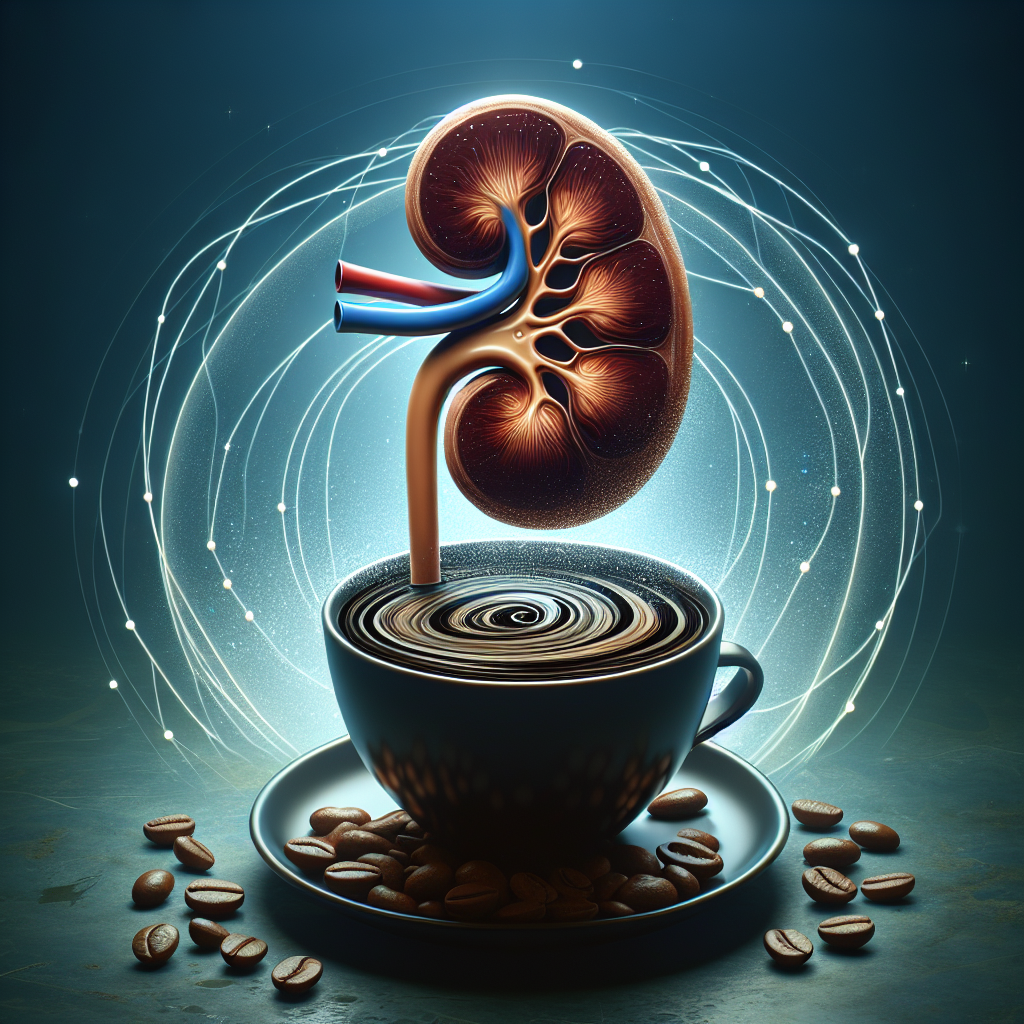Introduction
Imagine starting your day without a steaming cup of coffee or a refreshing glass of iced tea. For many Americans, caffeine is the fuel that ignites their daily routine. But as we sip our favorite caffeinated beverages, a nagging question arises: Is caffeine bad for the kidneys? Understanding this topic involves diving into the intriguing world of kidney health and the effects of caffeine consumption.
- The Role of Kidneys in Our Body
- Unveiling the Truth: Caffeine’s Impact on Kidneys
- Potential Risks and Benefits of Caffeine
- Moderation: The Golden Rule
- FAQs About Caffeine and Kidney Health
The Role of Kidneys in Our Body
Before we dissect the relationship between caffeine and kidneys, it’s essential to understand the vital role these bean-shaped organs play in our body. Located just below the rib cage, our kidneys are like sophisticated filters, diligently removing waste and excess fluids from the bloodstream, balancing electrolytes, and regulating blood pressure.
In essence, our kidneys are akin to silent sentinels, tirelessly working to maintain a delicate balance within our bodies. So, naturally, any potential threat to their well-being warrants close scrutiny.
Unveiling the Truth: Caffeine’s Impact on Kidneys
Caffeine, found in coffee, tea, soda, and energy drinks, is a stimulant that affects every individual differently. For most people, moderate consumption is generally considered safe. However, excessive intake may lead to various health concerns, including potential kidney issues.
Research suggests that while moderate caffeine consumption doesn’t appear to cause significant harm to healthy individuals, those with pre-existing kidney conditions should be more cautious. Excessive caffeine can cause an increase in blood pressure, which could burden the kidneys over time.
Potential Risks and Benefits of Caffeine
Caffeine isn’t all bad news; it has been linked to several health benefits such as improved mental alertness and reduced risk of certain diseases. But like a double-edged sword, it also carries potential risks:
- Dehydration: Caffeine is a diuretic, meaning it can increase urine production and potentially lead to dehydration if not counterbalanced with adequate water intake.
- Increased Blood Pressure: Elevated blood pressure can strain the kidneys and exacerbate existing kidney conditions.
- Kidney Stones: Some studies suggest a possible link between high caffeine intake and kidney stone formation, though more research is needed to establish a definitive connection.
Moderation: The Golden Rule
Like savoring a fine wine or indulging in a decadent dessert, the key to enjoying caffeine lies in moderation. The FDA recommends a maximum of 400 milligrams of caffeine per day for most adults—roughly four cups of brewed coffee.
If you have existing kidney issues or other health concerns, it’s wise to consult with a healthcare professional. You can learn more from the National Kidney Foundation, which offers comprehensive resources on maintaining kidney health.
FAQs About Caffeine and Kidney Health
Can caffeine cause kidney damage?
Moderate caffeine consumption is generally safe for most people. However, excessive intake might contribute to kidney damage over time, especially in individuals with pre-existing conditions.
How much caffeine is too much?
The FDA recommends no more than 400 milligrams of caffeine per day for most adults. Consuming more than this amount regularly could pose health risks.
Does caffeine affect everyone the same way?
No, caffeine affects individuals differently based on factors such as age, weight, genetics, and overall health. It’s important to listen to your body and adjust your intake accordingly.
Conclusion
So, is caffeine bad for the kidneys? The answer isn’t black and white. While moderate consumption is typically safe for healthy individuals, those with kidney issues should tread carefully. By understanding your body’s unique needs and respecting the power of moderation, you can continue to enjoy your favorite caffeinated beverages without compromising your kidney health.
For those looking to delve deeper into related topics or seek guidance on specific matters like installing Laravel on a local server, additional resources are readily available.
Remember, just as our kidneys work tirelessly to keep us balanced, so too must we find balance in our dietary choices.
What is the best drink for high blood pressure?








